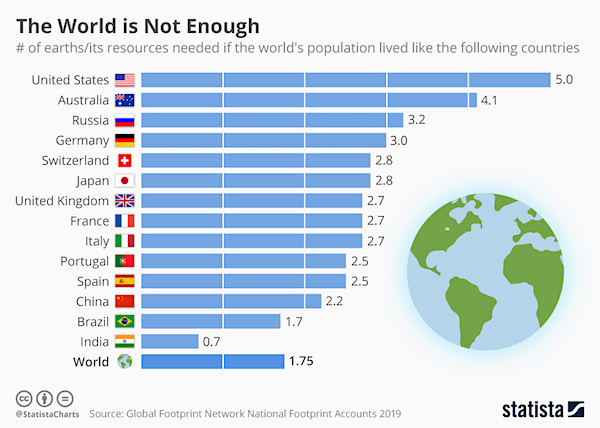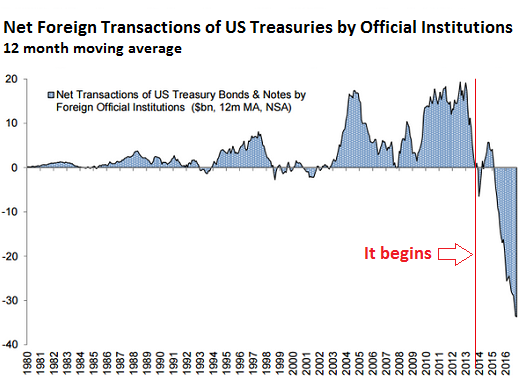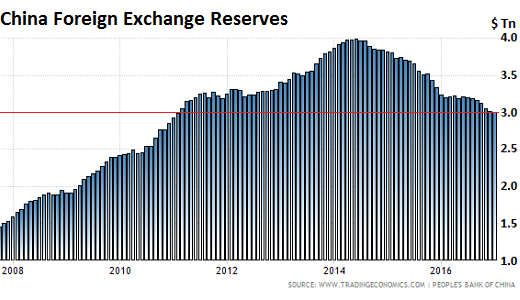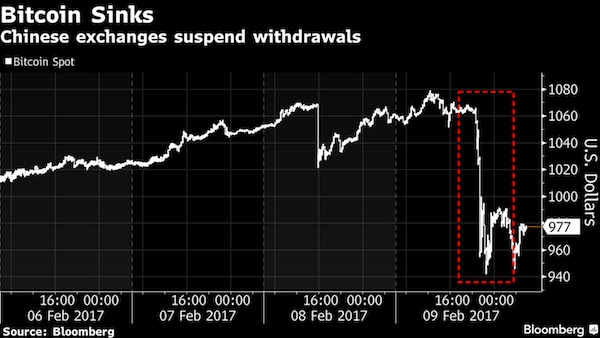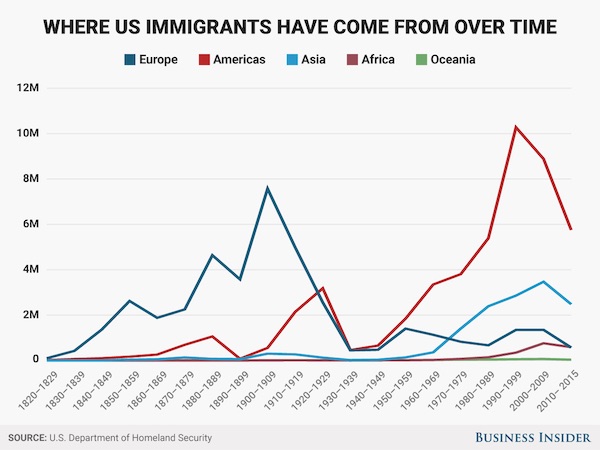
James Ensor The oyster eater 1882



Jan 6
Just in time. The promo for the January 6th hearings has just been released. pic.twitter.com/5eK1ydemyO
— Maze (@mazemoore) June 9, 2022

“Those who choose the lesser evil forget very quickly that they chose evil.”
— Hannah Arendt

Tucker Jan 6
Jan 6 in perspective pic.twitter.com/iOFBIBWrxt
— James Hirsen (@thejimjams) June 10, 2022


“It is cover your ass time and Zelensky prominence in the ‘west’ makes it possible to blame him personally for the outcome of the war.”
• Washington Starts Blame Game Over Defeat In Ukraine (MoA)
The New York Times, here via Yahoo, has some rather weird piece over alleged lack of intelligence on Ukrainian warplanes: U.S. Lacks a Clear Picture of Ukraine’s War Strategy, Officials Say: “President Volodymyr Zelenskyy of Ukraine has provided near-daily updates of Russia’s invasion on social media; viral video posts have shown the effectiveness of Western weapons in the hands of Ukrainian forces; and the Pentagon has regularly held briefings on developments in the war. But despite the flow of all this news to the public, U.S. intelligence agencies have less information than they would like about Ukraine’s operations and possess a far better picture of Russia’s military, its planned operations and its successes and failures, according to current and former officials.”
[..] Andrei Martyanov rants about the piece: “Well, NYT decided to start steering clear of this whole Russia “lost in Ukraine” BS it promoted together with neocon crazies, and begins this ever familiar tune of the “intel failure”. Right.” […] Larry Johnson thinks there is another another motive behind the story: “Frankly, I find it hard to believe that there are not solid analysts at the Defense Intelligence Agency who know the answers to all these questions. The real problem may not be a lack of intelligence. Nope. It is the fear of telling the politicians hard truths they do not want to hear.”
I do not believe for one moment that U.S. intelligence services do not know what is going on in Ukraine and in Kiev. They know that the Ukraine has lost the war and will have to sue for peace as soon as possible. They also have told the White House that this is a case and that the whole idea of setting up the Ukraine to tickle the Russian bear was idiotic from the get go. The question now is who will take the blame for the outcome. Who can the buck be passed to? There is always the option for politicians, as Andrei assumes is the case, to blame the intelligence and the various agencies which provide it. This was done when the war on Iraq, based on false claims weapons of mass destruction, started to go bad for the U.S.
But what the NYT piece does is passing the buck from the intelligence community to president Zelensky of Ukraine: “He did not inform us about the bad position his country was in.” It is cover your ass time and Zelensky prominence in the ‘west’ makes it possible to blame him personally for the outcome of the war.

Straight from the Lockheed Martin PR department.
• We’re Almost Out Of Ammunition And Relying On Western Arms, Says Ukraine (G.)
Ukraine’s deputy head of military intelligence has said Ukraine is losing against Russia on the frontlines and is now almost solely reliant on weapons from the west to keep Russia at bay. “This is an artillery war now,” said Vadym Skibitsky, deputy head of Ukraine’s military intelligence. The frontlines were now where the future would be decided, he told the Guardian, “and we are losing in terms of artillery”. “Everything now depends on what [the west] gives us,” said Skibitsky. “Ukraine has one artillery piece to 10 to 15 Russian artillery pieces. Our western partners have given us about 10% of what they have.” Ukraine is using 5,000 to 6,000 artillery rounds a day, according to Skibitsky.
“We have almost used up all of our [artillery] ammunition and are now using 155-calibre Nato standard shells,” he said of the ammunition that is fired from artillery pieces. “Europe is also delivering lower-calibre shells but as Europe runs out, the amount is getting smaller.” The Ukrainian president, Volodymyr Zelenskiy, said last week that between 60 and 100 Ukrainian soldiers were dying each day and a further 500 were being injured. Ukraine has kept the total number of its military losses secret. Soldiers speaking to the Guardian from Ukraine’s frontlines this week painted a similar picture. Skibitsky emphasised the need for the west to supply Ukraine with long-range rocket systems to destroy the Russian artillery pieces from afar.
This week the Ukrainian presidential adviser Oleksiy Arestovych told the Guardian that Ukraine needed 60 multiple-rocket launchers – many more than the handful promised so far by the UK and US – to have a chance of defeating Russia. Ukraine is set to ask the west for a list of weapons and defensive equipment at the contact group meeting with Nato in Brussels on 15 June. Skibitsky thinks the conflict will remain predominantly an artillery war in the near future and the number of rocket attacks – which can be launched from Russia and have hit civilians – will remain at their current rate.

“If you are ready to sign some guarantee agreements with him, we are not..”
• The US/UK Proxy War Forestalling Peace Negotiations in Ukraine (CD)
The British government, as ever following the US lead, is sending longer range missile systems to Ukraine for the first time. The government described the M270 weapon system they are despatching as a “cutting edge” military asset which can strike targets up to 80 kilometres away “with pinpoint accuracy.” Ukrainian soldiers are due to be brought to Britain for training in how to use the missiles. Britain and the US appear to have abandoned even the limited military restraint they showed early on in the war. Their policy of pumping in the weapons and pushing for outright victory risks disaster. They must be stopped.
As even some of the mainstream media point out, on top of the four precision-guided, medium-range rocket systems sent by the US last week, this decision marks a new stage in the war in which the West is prepared to provide the Ukrainian military with the capacity to strike deep in to Russian territory, something they previously carefully avoided. This is one in a series of escalations on the part of the Western powers. It provoked immediate retaliation in words and deeds from Vladimir Putin—including the first bombardment of Kiev for five weeks—as Western leaders must have known it would. It underlines the fact that the West is still pushing for nothing less than the complete defeat of Russia while Russian troops continue their offensive.
As British Defence Secretary, Ben Wallace, said in a statement announcing the new weapons shipment, “If the international community continues its support, I believe Ukraine can win”. As part of this policy of proxy war, the West has been deliberately trying to head off moves towards serious negotiations. The leading pro–Western Ukrainian newspaper Ukrayinska Pravda reported recently that Boris Johnson himself appeared in Kyiv early in May almost without warning, urging Zelensky not to negotiate with Putin. “If you are ready to sign some guarantee agreements with him, we are not,” Johnson said, insisting it was instead the time to “press him.” Johnson later confirmed to French president Emmanuel Macron that he had “urged against any negotiations with Russia on terms that gave credence to the Kremlin’s false narrative for the invasion.”

“I do not believe it is necessary, in the current context, to provide any guarantees whatsoever to Russia on our military posture in the region.”
• Nuclear Deployments in Finland & Sweden Not Ruled Out, NATO Says (LI)
The NATO military alliance will not offer Russia any guarantees regarding the deployment of nuclear weapons to prospective member states Sweden and Finland, with a senior official in the bloc stressing that such decisions must be left to individual nations. Speaking to Swiss broadcaster RTS for an interview over the weekend, NATO’s Assistant Secretary General for Defense Investment Camille Grand was asked whether Western powers should provide nuclear assurances to Moscow in light of recent membership applications from Stockholm and Helsinki, which asked to join alliance following Russia’s attack on Ukraine earlier this year.
“Every country is free in the nuclear field to deploy or not to deploy such weapons. We are not talking about setting up some principle restrictions on the possible actions of the alliance,” he said, adding “This is a discussion that centers on the sovereignty of each member state of the alliance.” Five NATO states currently host American nuclear weapons on their soil, including Turkey, Italy, Germany, Belgium and the Netherlands. Seven other members participate in the bloc’s SNOWCAT program – under which non-nuclear nations offer conventional air support for nuclear operations – while all 30 members of the alliance with the exception of France belong to its nuclear planning group.
Grand went on to say that the accession of the two Nordic states would not “radically change the strategic or military situation” in the region, arguing that “We do not have the intention nor the means to invade Russia, or carry out offensive actions against Russia,” and that Moscow “know this very well.”

It might not be the smartest move to start seizing ships if you have so many ships out there yourself.
• Greek Court Overturns Ruling on Seizure of Iranian Ship (GR)
A Greek court on Wednesday overturned an earlier court ruling that allowed the confiscation by the United States of part of a cargo of Iranian oil on an Iranian-flagged tanker off the Greek coast. The incident had led to an angry response by Iran, with Iranian forces last month seizing two Greek tankers in the Gulf after Tehran warned it would take “punitive action” against Athens. The Iranian embassy in Greece had earlier announced that “Following intensive follow-ups, the Greek Court of Appeals will revoke the ruling of the initial court to confiscate oil belonging to Iran and the entire oil shipment will be returned.” On April 19, the Greek Coast Guard seized the Russian tanker Pegasus, operating under the Iranian flag, off the island of Evia.
The Greek government announced that it would deliver 115,000 tons of Iranian oil on the Lana tanker to the United States, but Tehran called the move an act of piracy by Athens. Iranian Ambassador to Greece Ahmad Naderi, in continuation of intensive diplomatic and legal activities over the past few weeks to prevent US piracy off the coast of Greece, visited the port of Karistos and met with the captain of the ship to review the latest developments, according to a report in the Iranian News Agency MNA. Following the seizure of the Iranian ship in Greek waters, the Iranian Ministry of Foreign Affairs summoned the Greek Charge d’affaires to convey a strong protest of Iran to the Greek officials.

“The US economy is indeed a lame post-modern remake of the late Roman empire: “dependent on foreign tribute for its survival in today’s global rentier economy.”
• Will The Global South Break Free From Dollarized Debt? (Escobar)
With The Destiny of Civilization: Finance Capitalism, Industrial Capitalism or Socialism, Michael Hudson, one of the world’s leading independent economists, has given us arguably the ultimate handbook on where we’re at, who’s in charge, and whether we can bypass them. Let’s jump straight into the fray. Hudson begins with an analysis of the “take the money and run” ethos, complete with de-industrialization, as 90 percent of US corporate revenue is “used to share buybacks and dividend payouts to support company stock prices.” That represents the apex of “Finance Capitalism’s” political strategy: to “capture the public sector and shift monetary and banking power” to Wall Street, the City of London and other western financial centers.
[..] To a large extent, nostalgia for the rape-and-pillaging of 1990s-era Russia fuels what Hudson defines as the New Cold War, where Dollar Diplomacy must assert its control over every foreign economy. The New Cold War is not waged only against Russia and China, “but against any countries resisting privatization and financialization under US sponsorship.” Hudson reminds us how China’s policy “followed almost the same path that American protectionism did from 1865 though 1914 – state subsidy for industry, heavy public-sector capital investment…and social spending on education and health care to upgrade the quality and productivity of labor. This was not called Marxism in the United States; it was simply the logical way to look at industrialization, as part of a broad economic and social system.”
But then, finance – or casino – capitalism gained steam, and left the US economy mainly with “agribusiness farm surpluses, and monopolies in information technology (largely developed as a by-product of military research), military hardware, and pharmaceutical patents (based on public seed-money to fund research) able to extract monopoly rent while making themselves largely tax-exempt by using offshore banking centers.” That’s the current State of Empire: relying only “on its rentier class and Dollar Diplomacy,” with prosperity concentrated in the top one percent of establishment elites. The inevitable corollary is US diplomacy imposing illegal, unilateral sanctions on Russia, China and anyone else who defies its diktats.
The US economy is indeed a lame post-modern remake of the late Roman empire: “dependent on foreign tribute for its survival in today’s global rentier economy.” Enter the correlation between a dwindling free lunch and utter fear: “That is why the United States has surrounded Eurasia with 750 military bases.” Delightfully, Hudson goes back to Lactantius, in the late 3rd century, describing the Roman empire on Divine Institutes, to stress the parallels with the American version: “In order to enslave the many, the greedy began to appropriate and accumulate the necessities of life and keep them tightly closed up, so that they might keep these bounties for themselves. They did this not for humanity’s sake (which was not in them at all), but to rake up all things as products of their greed and avarice. In the name of justice they made unfair and unjust laws to sanction their thefts and avarice against the power of the multitude. In this way they availed as much by authority as by strength of arms or overt evil.”

“Who’s ever going to talk to a president in confidence when she or he knows that their conversation can be revealed if the new president of a different party decides to waive the privilege..”
• Dershowitz Says Admin Using ‘Stupidest Argument’ On Executive Privilege (JTN)
Harvard Law professor emeritus Alan Dershowitz said the Biden Administration is putting forward “the stupidest, dumbest legal argument” he has heard by claiming that the current president can waive the executive privilege of a former president. Dershowitz, who admitted to voting for President Joe Biden in 2020, slammed the White House’s legal claims during an interview with “Just the News, Not Noise” on Thursday. “The way it works is if Congress wants to enforce a subpoena, it goes to court. It has a hearing in which both sides are presented, not to a political body like Congress, but to a neutral judicial body like the court and the court decides whether or not the claim of privilege prevails,” Dershowitz responded to editor-in-chief John Solomon, who had asked for the legal scholar’s opinion on the case of former Trump trade advisor Peter Navarro.
The former White House advisor was arrested last week for defying a Jan. 6 committee subpoena, which he refused to follow citing executive privilege. “I voted for Biden,” Dershowitz prefaced before continuing: “The Biden administration has put forward the dumbest legal argument I have heard in my almost 60 years of practicing law, the dumbest legal argument. “They claim that the current president, Joe Biden, can waive executive privilege that was invoked by the former president. That would mean the end of executive privilege,” he warned. “Who’s ever going to talk to a president in confidence when she or he knows that their conversation can be revealed if the new president of a different party decides to waive the privilege. It is the stupidest, dumbest argument,” Dershowitz stressed.

“The Unselects have ruled Pelosi ‘off limits, no questions.’ The hearing is another political HOAX to counter Inflation etc.”
• Trump: ‘January 6th Was Not Simply a Protest’ (GP)
Donald Trump has weighed in on January 6 ahead of the made-for-tv House committee hearing spearheaded by Democrats and a few RINOS. In a post on his social media platform, TRUTH Social, Trump said that “January 6th was not simply a protest, it represented the greatest movement in the history of our Country to Make America Great Again.” Trump began, “The Unselect Committee didn’t spend one minute studying the reason that people went to Washington, D.C., in massive numbers, far greater than the Fake News Media is willing to report, or that the Unselects are willing to even mention, because January 6th was not simply a protest, it represented the greatest movement in the history of our Country to Make America Great Again. It was about an Election that was Rigged and Stolen, and a Country that was about to go to HELL..& look at our Country now!”
An hour later, in a subsequent post, Trump added, “The Unselect Committee of political Thugs, essentially the same group who brought you the now fully debunked and discredited RUSSIA, RUSSIA, RUSSIA HOAX (and many others!), refused to study and report on the massive amount of irrefutable evidence, much of it recently produced, that shows the 2020 Presidential Election was Rigged and Stolen. They want NOTHING to do with that topic because they cannot win on the facts. CANCEL & DENY, call it ‘THE BIG LIE,’ is all they can do. Corrupt Politicians!” Trump pointed out that he had suggested and offered up 20,000 National Guard troops prior to January 6, but House Speaker Nancy Pelosi declined.
“The Unselect Committee has now learned that I, as President, suggested & offered up to 20,000 National Guard, or troops, be deployed in D.C. because it was felt that the crowd was going to be very large,” Trump continued. “Crazy Nancy Pelosi turned down the offer, she didn’t like the way it looked. Likewise, the Mayor of D.C. Had they taken up the offer, there would have been no January 6th. The Unselects have ruled Pelosi ‘off limits, no questions.’ The hearing is another political HOAX to counter Inflation etc.”


“He expressly told his followers “to peacefully and patriotically make your voices heard.”
• So You Say You Want a Revolution? (Turley)
“So you say you want a revolution.” When they sang those lines, the Beatles could well have been talking about Democratic leaders today. Revolution seems much in the minds and the rhetoric of politicians who are continuing to threaten swift responses to the Court if it rules against their wishes. The latest armchair revolutionary is President Joe Biden himself who went on Jimmy Kimmel to do the first sit down interview in months. To his credit, Biden was promising only a “mini-Revolution.” Others have gone full revolutionary. Sen. Jeanne Shaheen, D-N.H., joined the growing ranks of members of Congress in issuing a warning to the Supreme Court: reaffirm Roe v. Wade or else. The “else” varies from promises to pack the Court to personal accountability for justices. For Shaheen, it is a promise of “revolution.”
Clearly, these leaders are using over-heated rhetoric and do not support violence. They no more want true revolution than Sen. Chuck Schumer was calling for the killing of Justices Brett Kavanaugh and Neil Gorsuch when he declared on the steps of Supreme Court “I want to tell you, Gorsuch, I want to tell you, Kavanaugh, you have released the whirlwind and you will pay the price. You won’t know what hit you if you go forward with these awful decisions.” Calling for revolutionary change in politics is as common as calling on people to “fight” political opponents or legislative actions. For example, with rioting continuing in Brooklyn Center, Minn. and around the country, Rep. Maxine Waters, D-CA, went to Minnesota and told the protesters that they “gotta stay on the street” and “get more confrontational.”
However, these same politicians have insisted that such references are literal when made by their opponents. Notably, Democrats are holding hearings this week on how Republicans bear responsibility for the Jan. 6th riot due to their calls to “fight” against certification of the 2020 election. On that day, there is no question that Trump whipped the crowd into a frenzy. I was critical of the speech while he was giving it. However, Trump never actually called for violence or a riot. Rather, he urged his supporters to march on the Capitol to express opposition to the certification of electoral votes and to support the challenges being made by some members of Congress. He expressly told his followers “to peacefully and patriotically make your voices heard.”

2-3-foot-long clots…
• COVID Vaccines Appear To Cause Abnormally Long Blood Clots (JTN)
Unusually long blood clots are being found in people who received COVID-19 vaccines, according to Dr. Ryan Cole of Cole Diagnostics in Boise, Idaho. Cole’s laboratory receives tissue samples from morticians across the country. He reports that they are finding long blood clots — including several that are inches-long and even a couple that are a foot long — in corpses that contained the COVID vaccine. Liberty Counsel, a religious freedom legal advocacy nonprofit currently representing military members seeking vaccine mandate exemptions, recently interviewed Cole. His lab “is able to determine the difference between a spike protein caused by the virus and a spike protein caused by the COVID shots, which are demonstrably different and much more pronounced and serious,” according to the organization.
Cole told Greg Hunter on USAWatchdog earlier this month that a Stanford University study found that, unlike a COVID infection, which leaves the body in a week or two, the vaccine causes the spike protein to remain in the body longer. “[T]hose who had a natural infection cleared the virus within that first week or two — their body had the ability to clear it,” Cole said. “But when you put the synthetic sequence in, the body is not clearing it,” he explained. “It’s persistently making spike protein. And that sequence is persisting, and then it’s damaging the organs chronically over time, it’s damaging the immune cells chronically over time, it’s causing clots … chronically over time.”
With mRNA vaccines, the spike protein can stay “up to 8 weeks postvaccination in some cases,” according to the study. Cole’s lab is “seeing mushy organs, we’re seeing incredibly inflamed organs,” he said. “We know the spike protein cause all the … bad outcomes that the virus did in 2020. And a lot of comorbid individuals, we know that spike protein is causing inflammation in the lung, the brain, the liver, the kidneys, the heart — it’s causing the same damage that the virus was causing.” However, “in the body, the shots are persisting and making more spike protein than if you had a natural infection,” he added. Cole also cited studies by South African doctor Resia Pretorius, who found that the COVID “spike protein alone causes the proteins in our blood to clump,” he said.
“That spike protein is thrombogenic — it causes clots, and it causes a lot of clots.” Morticians usually “put a dissolving fluid in to break up clots so they can get their embalming fluid in,” Cole said in a March interview with Steve Kirsch. “And they were getting back pressure on the system, saying, ‘What in the world is going on?’ They ended up “pulling out, you know, 6-inch clots, 12-inch clots, 2-3-foot-long clots,” he said. “Because you know from the hip down into the leg, you have a long vein called the saphenous vein. And so they were pulling long clots out of your longer veins. And … they hadn’t seen anything like this previously.”

This has me wondering how other countries’ pension systems are doing.
• Unfunded State Pension Liabilities Grow To $8.28 Trillion (JTN)
Unfunded state pension liabilities have climbed to $8.28 trillion, or nearly $25,000 for every person in the United States, according to a new report from the American Legislative Exchange Council. The American Legislative Exchange Council released the latest edition of its report on pensions in all 50 states Thursday. The report, “Unaccountable and Unaffordable 2021,” shows just a handful of states with outsize pension liabilities account for a large share of overall pension debt in the U.S. The report looked at 290 state-administered government pension plans and their assets and liabilities from fiscal year 2012 to fiscal year 2020. An example of state-administered government pension plans in Illinois would cover state employees, teachers, university workers, judges and lawmakers.
The states with the most unfunded liabilities were California ($1.53 trillion), Illinois ($533.72 billion), Texas ($529.70 billion), New York ($508.70 billion) and Ohio ($429.53 billion). These five states alone account for more than $3.5 trillion in unfunded liabilities, or about 43% of all unfunded liabilities in the U.S. The bottom 10 states make up $4.9 trillion, or 59.36% of all unfunded liabilities, according to the ALEC report. On a per capita basis, the bottom five state were Alaska ($42,829), Illinois ($41,656.79), Connecticut ($40,427.58), Hawaii ($39,939.43), New Jersey ($39,849.02) and California ($38,713.16).
“As state pension plans invest their funds in increasingly risky assets, the gap between expected rates of return and actual rates of return widens, with results falling far short of expectations,” the authors of the report wrote. “When investment returns fail to meet expectations, taxpayers and plan members must make up the difference through increased contributions.” [..] No state in the U.S. has fully funded its pension plans. The state with the highest funding ratio in the nation is Wisconsin at 56% and New Jersey was the lowest at 18%.

Anyone ever wonder why our ancestors didn’t grow up eating insects? Much easier than hunting gazelle…
• Welsh Schools to Feed Primary Students Insects (VT)
This week, students at four primary schools in Wales will be offered insects such as crickets, grasshoppers, silkworms, locusts and mealworms to eat in an effort by researchers to determine their appetite for “alternative proteins.” Researchers are hoping to gain insight into how to best educate children on the environmental and nutritional benefits of edible insects and in turn, hope to influence their parents’ behavior concerning the dinner table. The project will employ surveys, workshops, interviews and focus groups to gauge students’ understanding and experiences concerning alternative proteins. One of the schools participating in the research is Roch Community Primary School in Pembrokeshire.
Carl Evans, the school’s Headteacher, said the research will provide students with insight into the connection between their local community and food production. “There is an important connection between our local community, food production and wider global issues surrounding sustainable development,” said said, adding that, “These issues are important to children, but also difficult to make sense of an can often be confusing for them.” One researcher involved in the study, Christopher Bear, of Cardiff University wants children to consider edible insects as a choice for nourishment today rather than in the future. “We want children to think about alternative proteins as real things for now, rather than just as foods for the future, so trying some of these foods is central to the research,” he said.

It would make the entire process illegal.
• Judge: CIA May Have Received Illicitly Recorded Assange Conversations (ElP)
The conversations between Julian Assange and his lawyers illicitly recorded by the Spanish security company UC Global at the Ecuadorian Embassy in London, where the WikiLeaks founder took refuge for years, could have been delivered to agents of the US secret services, according to Santiago Pedraz, the judge at Spain’s High Court, the Audiencia Nacional, in charge of the espionage case. Delivery to the Central Intelligence Agency (CIA) or to US authorities of details about the defense strategy of the cyberactivist, whom the US wants to have extradited from the UK, is reflected in a court order issued by Pedraz to which EL PAÍS has had access. In this document, which deals with procedural issues, the judge explains to the British authorities why he needs to take witness testimony from the British lawyers and Assange’s doctors who were spied on at the embassy.
These individuals include Gareth Peirce, 82, the famous British lawyer who was played by actress Emma Thompson in the 1993 movie In the Name of the Father. Proving that US intelligence services learned about Assange’s defense strategy by spying on his lawyers could annul the extradition by questioning the illegal methods used by the US to get Assange tried there, according to legal sources. If Spain is allowed to take testimony, as victims of US espionage, from lawyers and doctors who are now defending him in the extradition case, the British justice system would be left in an embarrassing situation, according to the same sources. It could be argued that the process was flawed because the right of defense was violated by the country requesting the extradition.
The judge sent a European Investigation Order (EIO) to the British justice more than two years ago, when he requested permission to question Assange in a videoconference from London as a witness in the case against Undercover Global. But British authorities have been reluctant to cooperate, and have asked for additional information on top of documents that were sent months ago without receiving a response. The EIO is a common judicial tool to speed up cooperation between judges and circumvent laborious rogatory letters based on instruments of international law. In this case, however, the British justice has been blocking the investigation. The British lawyers spied on at the embassy by order of UC Global owner David Morales, and whom Pedraz is asking to interrogate, are the same ones who are now defending Assange in the US extradition request that a British judge has just approved. Home Secretary Priti Patel, one of the toughest members of Boris Johnson’s government, has two months to make the final decision.




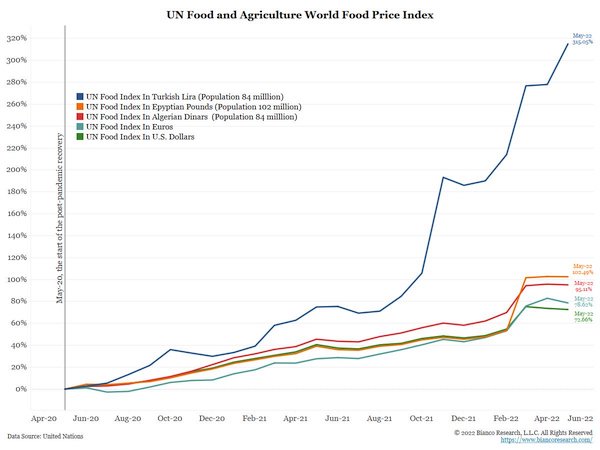





We were small & thought we knew nothing
Worth knowing. We thought words travelled the wires
In the shiny pouches of raindrops,
Each one seeded full with the light
Of the sky, the gleam of the lines, & ourselves
So infinitesimally scaled
We could stream through the eye of a needle
– Seamus Heaney

Support the Automatic Earth in virustime with Paypal, Bitcoin and Patreon.





